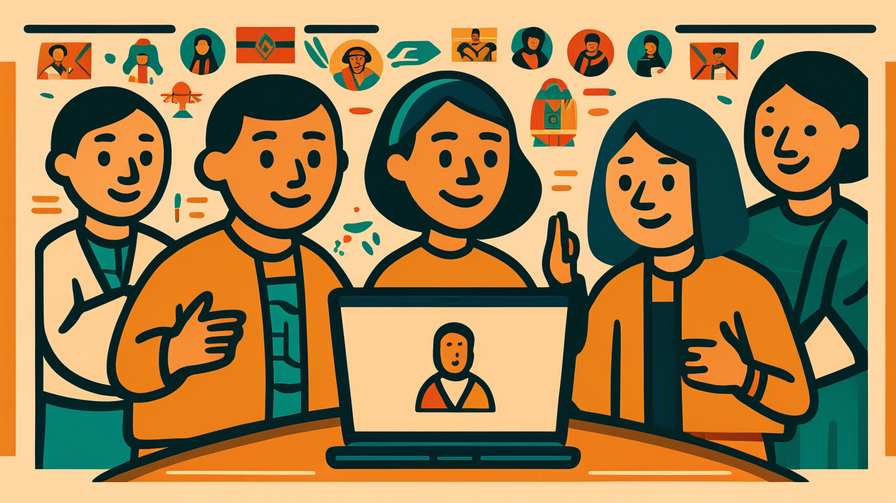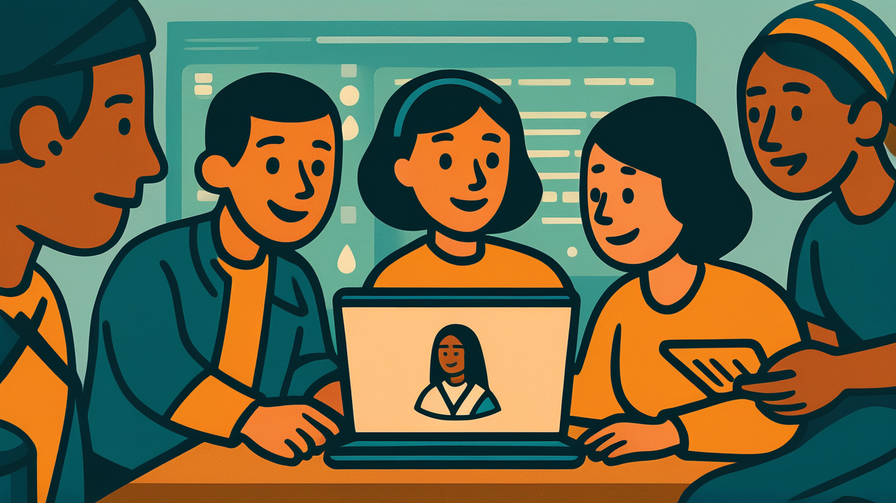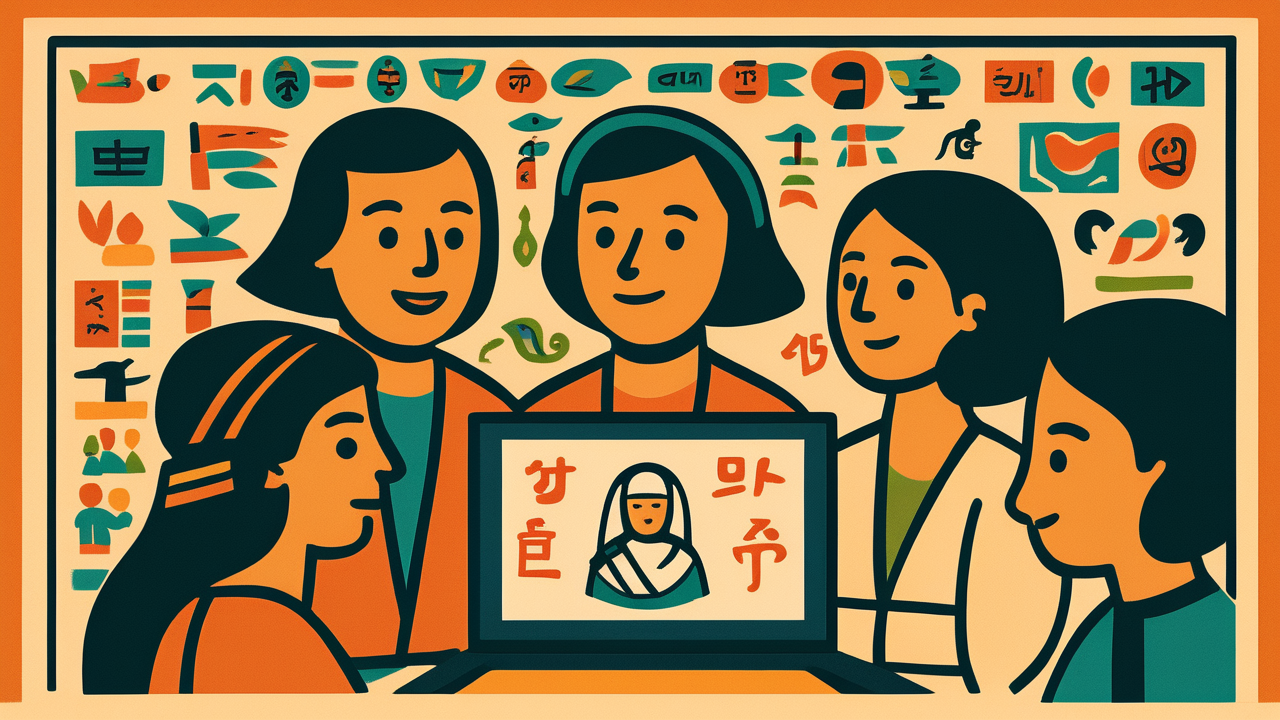[Disclaimer] This article is reconstructed based on information from external sources. Please verify the original source before referring to this content.
News Summary
The following content was published online. A translated summary is presented below. See the source for details.
Global Voices has launched a donation campaign to support their vital work in preserving and promoting indigenous languages in the digital space. The campaign highlights the story of Tapas Katu, an Atayal language digital activist who champions the normalization of indigenous language use online. Atayal is an indigenous language spoken in Taiwan by the Atayal people. Katu’s work represents a growing movement of digital activists who are working to ensure indigenous languages don’t disappear in the internet age. Global Voices, an international community of writers, translators, and activists, works to amplify underrepresented voices and perspectives from around the world. Their donation campaign aims to fund programs that support indigenous language activists, provide translation services, and create digital resources that help preserve endangered languages. The organization believes that linguistic diversity online is crucial for maintaining cultural heritage and ensuring that all communities can participate in the global digital conversation.
Source: Global Voices
Our Commentary
Background and Context

Imagine if English suddenly disappeared from the internet—no more Instagram captions, YouTube videos, or text messages in your language. That’s the reality for speakers of indigenous languages, many of which have little to no presence online. This digital invisibility threatens these languages with extinction.
Global Voices is like a superhero team for endangered languages, working to make sure every language has a place on the internet. They bring together writers, translators, and activists from around the world who believe that the internet should reflect the true diversity of human languages, not just the dominant ones.
Expert Analysis
The work of activists like Tapas Katu is revolutionary in its simplicity. By using the Atayal language online—posting on social media, creating content, writing blogs—he’s showing that indigenous languages belong in the digital age just as much as English or Spanish.
This matters more than you might think. When a language disappears, we lose not just words but entire ways of understanding the world, traditional knowledge about nature and medicine, stories, jokes, and cultural wisdom accumulated over thousands of years. The internet, which connects billions of people, can either accelerate language loss or become a powerful tool for preservation.
Global Voices understands that young people are key to this effort. If indigenous youth see their languages being used on TikTok, in games, and on websites, they’re more likely to learn and use these languages themselves. It’s about making indigenous languages “cool” and relevant in the digital age.
Additional Data and Fact Reinforcement
The urgency of this work becomes clear when you look at the numbers:
• There are approximately 7,000 languages spoken worldwide
• About 40% of languages are endangered
• One language dies every two weeks
• Only a tiny fraction of languages have significant digital presence
The Atayal language, which Tapas Katu advocates for, is spoken by about 85,000 people in Taiwan. While that might sound like a lot, it’s considered vulnerable because younger generations are shifting to Mandarin Chinese. Digital activism offers a lifeline—creating spaces where young Atayal speakers can use their language in modern contexts.
Related News
This campaign connects to broader movements for digital equity and cultural preservation. UNESCO has declared 2022-2032 as the International Decade of Indigenous Languages, recognizing the urgent need for action. Tech companies are also getting involved—Google and Microsoft have added more indigenous languages to their translation services, though much more work is needed.
The rise of AI makes this work even more critical. If indigenous languages aren’t represented in the data that trains AI systems, these languages will be further marginalized in our increasingly AI-driven world. Organizations like Global Voices are racing to create digital content in indigenous languages before it’s too late.
Summary

Global Voices’ donation campaign represents a critical effort to save endangered languages by bringing them into the digital age. Through the work of activists like Tapas Katu, indigenous languages are finding new life online, proving that they’re not relics of the past but living, evolving forms of communication.
For students, this campaign offers a powerful lesson about the importance of linguistic diversity and digital activism. Whether you speak an indigenous language or not, you can support this cause by learning about endangered languages, sharing content from indigenous creators, or even learning a few phrases in a local indigenous language. In our interconnected world, preserving linguistic diversity isn’t just about saving words—it’s about maintaining the rich tapestry of human knowledge and culture for future generations.
Public Reaction
The campaign has received enthusiastic support from linguists, educators, and indigenous communities worldwide. Many young indigenous speakers have expressed excitement about seeing their languages represented online, saying it makes them proud to use their ancestral languages. Some donors have shared personal stories about language loss in their families, motivating them to support preservation efforts. However, some critics argue that digital preservation alone isn’t enough—languages need to be spoken in homes and communities to truly survive.
Frequently Asked Questions
Q: Why should we care about saving languages most people don’t speak?
A: Each language contains unique knowledge about the world. When we lose a language, we lose scientific knowledge about plants and animals, cultural wisdom, and different ways of thinking that could benefit everyone.
Q: How can teenagers help preserve indigenous languages?
A: Follow and share content from indigenous language creators, learn about local indigenous languages in your area, and support organizations like Global Voices that work on language preservation.
Q: Is using indigenous languages online really “normal” as Tapas Katu says?
A: It should be! Just as you naturally text in your first language, indigenous speakers should be able to use their languages in all digital spaces without it being seen as unusual.


